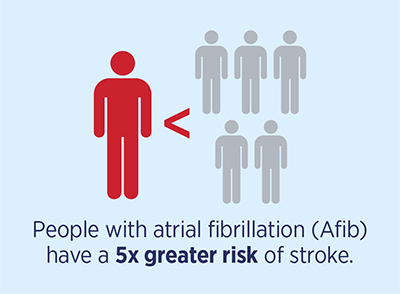Listen to Your Heart – Especially When It Skips a Beat
The speed and pattern of your heartbeat is regulated by your heart’s electrical system. A problem with this electrical system can result in an irregular heartbeat, also called an arrhythmia. It’s normal to have occasional fast, fluttering, or skipped heartbeats. However, when arrhythmias are prolonged or cause other symptoms, they're a problem.
One type of arrhythmia is called atrial fibrillation (AFib). AFib occurs when the upper chambers of the heart beat irregularly and very fast. AFib may be related to other heart problems, such as high blood pressure or heart disease due to valve issues, or it may occur on its own. Factors that may contribute to development of AFib include older age and heavy alcohol use.

Another type of arrhythmia, called supraventricular tachycardia (SVT), causes a fast, pounding heartbeat that may be associated with symptoms of dizziness and weakness, which can go away as suddenly as it started. Treatment with medications and/or catheter ablation procedure can prevent the reoccurrence of the arrhythmia.
To help protect your health, your doctor should evaluate any arrhythmia. If you are experiencing palpitations and have any of the symptoms below, call your doctor.
- A fast, pounding heartbeat
- Shortness of breath
- Fatigue, dizziness, or fainting
- Chest pain or pressure